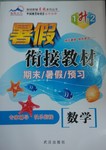题目内容
The day after Thanksgiving has become America’s wildest shopping day.Closed all day on Thursday, chain stores all across the nation open early on Friday.Some stores open at 12:01 Friday morning, while others open at 4 a.m.From Friday to the day before Christmas, this is the season when businesses make as much as 25 percent of their yearly profits.This season puts many businesses “in the black”—that is, into profitability—for the year.
Reporters from local TV stations interview people who camp out in front of stores a day or two before the doors open on Friday.These people patiently wait in line to get products that are discounted 50 percent or more.
“Oh, we have fun,” said one camper.“We bring games to play, we watch TV and order lots of pizza, and we meet interesting people.And, most important of all, we save big money!” The catch, of course, is that only a very small number of products are available at the largest discounts.Regardless, each store has plenty of other items(商品) that are reduced from 10 to 50 percent—saving shoppers from $10 to $400 per item—to encourage Americans to shop.
Not all Americans appreciate this craze for shopping.William Graham, a churchman, wants to rename Black Friday.“We want to call it Remember God Friday.People should start the season with the right attitude.Christmastime has become a Season of Shopping.We want to make it a Season of Giving.And we don’t mean giving IPods, DVDs, and other rubbish.We mean giving your back, your mind, and your hands.Help an old lady clean up her house.Teach a kid how to read.Visit sick people in the hospital or in nursing homes.Celebrate Christmas by remembering God and forgetting Santa Claus.”
1.Why is the day after Thanksgiving called “Black Friday”?
A.Because most stores are open when it’s still dark.
B.Because people think of God on that Friday.
C.Because many stores earn lots of money.
D.Because shoppers don’t know what they can buy.
2.People camp in front of stores ________.
A.to have a good time B.to meet interesting people
C.to buy cheap items D.to buy their favorite things
3.The underlined word “catch” in Paragraph 3 means ________.
A.a hidden difficulty B.an easy approach
C.some good news D.a reasonable result
4.According to William Graham, it’s ________ to shop wildly in the season of Thanksgiving and Christmas.
A.not proper B.important C.not interesting B.traditional
CCAA

 暑假衔接教材期末暑假预习武汉出版社系列答案
暑假衔接教材期末暑假预习武汉出版社系列答案 假期作业暑假成长乐园新疆青少年出版社系列答案
假期作业暑假成长乐园新疆青少年出版社系列答案
Bill Javis took over our village’s news-agency at a time of life when most of us only wanted to relax. He just thought he would like something but not too much to do, and the news-agency was ready-made. The business produced little enough for him, but Bill was a man who only wanted the simplicity and order and regularity of the job. He had been a long-serving sailor, and all his life had done everything by the clock.
Every day he opened his shop at 6:00 a. m. to catch the early trade; the papers arrived on his doorstep before that. Many of Bill’s customers were city workers, and the shop was convenient for the station. Business was tailing off by 10 o’clock, so at eleven sharp Bill closed for lunch. It was hard luck on anybody who wanted a paper or magazine in the afternoon, for most likely Bill would be down on the river bank, fishing, and his nearest competitor was five kilometers away. Sometimes in the afternoon, the evening paper landed on the doorway, and at 4 o’clock Bill reopened his shop. The evening rush lasted till seven, and it was worthwhile.
He lived in a flat above the shop, alone. Except in the very bad weather, you always knew where to find him in the afternoon, as I have said. Once, on a sunny afternoon, I walked home along the river bank from a shopping trip to the village. By my watch it was three minutes past four, so I was astonished to see Bill sitting there on his little chair with a line in the water. He had no luck, I could see, but he was making no effort to move.
“What’s wrong, Bill?” I called out from the path.
For answer, he put a hand in his jacket and took out a big, golden object. For a moment I had no idea what it could be, and then it suddenly went off with a noise like a fire engine. Stopping the bell, Bill held the thing up and called back, “Ten to four, you see, and this is dead right.”
I had never known anyone carrying a brass alarm clock round with him before.
1.Bill Javis became a news-agent when _______.
A. he needed the money
B. he was quite an old man
C. he decided to take up fishing
D. he gave up clock-repairing
2.Bill opened the shop so early in the day because _______.
A. he liked to do as much as possible before he went to work
B. the shop had to be open when the morning papers came
C. he was never sure of time
D. it was then that he did a lot of business
3.From the information given in the passage, who or what do you think was wrong?
A. The bell was-it must have gone off at the wrong time.
B. Bill was-he had dropped off to sleep.
C. The writer’s watch was-it was fast.
D. Bill’s clock was-it was old.